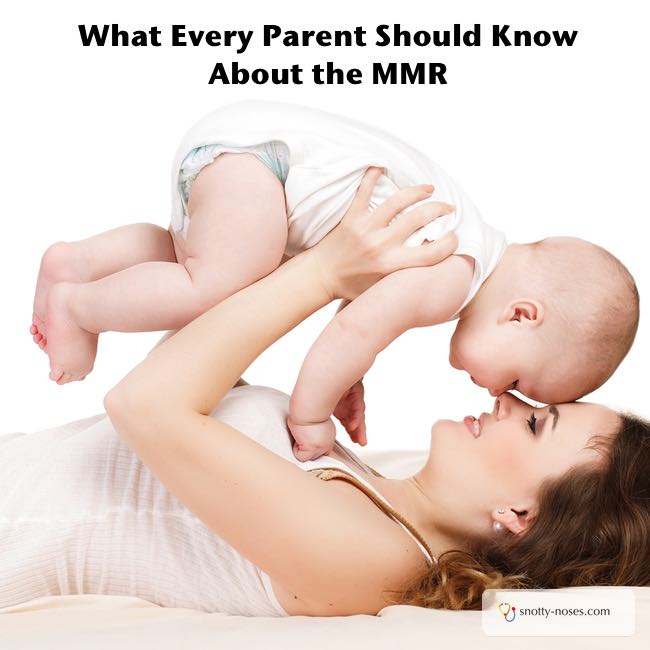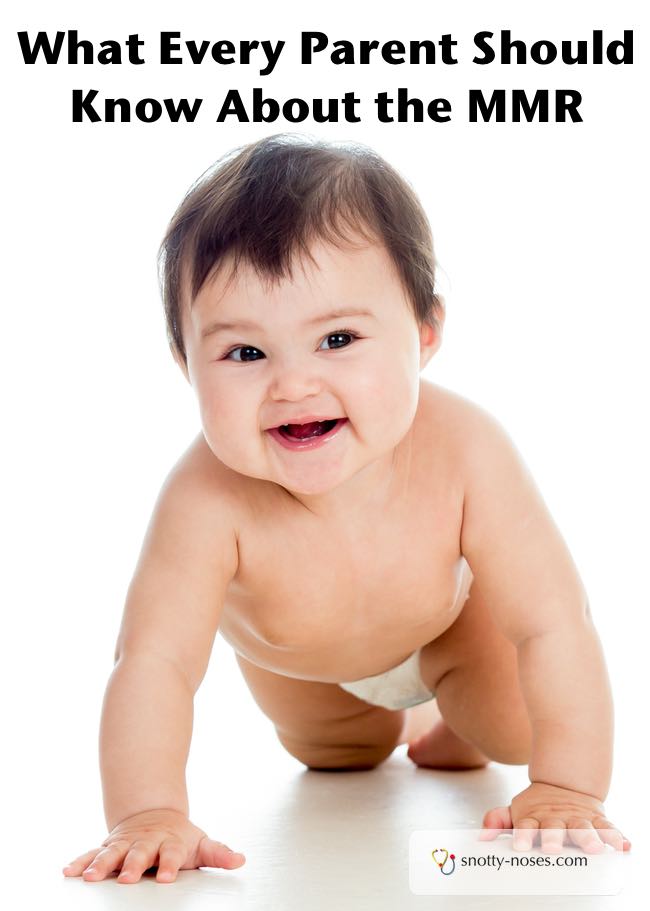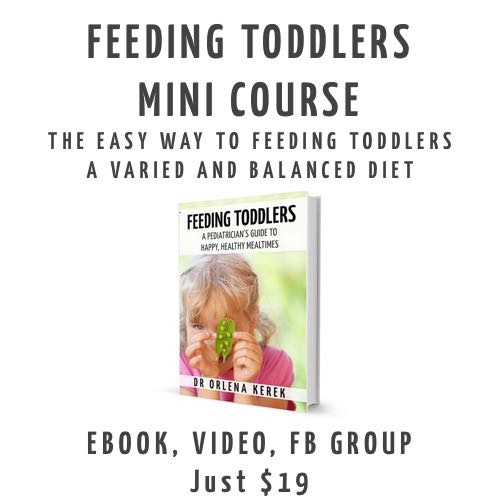MMR
The MMR is a vaccine that protects against Measles, Mumps and Rubella. There is a lot of scandal surrounding the MMR but the reality is that it protects our children and is an important part of your kid's health. Before the MMR, children died of measles.

What does MMR protect against?
Measles, Mumps and Rubella, what a horrible trio of illnesses, accounting for large numbers of deaths and morbidity. Let’s start by looking at measles. Notification in England and Wales began in 1940. At that time there were between 160 and 800 thousand notifications every year, with around 100 deaths. (And the population has grown 20% since then.) An initial vaccination was introduced in 1968 but as not everyone had the vaccination, the disease reduced but it didn’t entirely vanish. Children continued to die from measles.
In 1988 the MMR was introduced and over 90% of the population was vaccinated. Measles fell to a very low level.
MMR Schedule
The first dose of the MMR is given at around 1 year (between 12 and 15 months).
The second dose is given before children start school, between the ages of 3 and 5 (depending on your country). The second dose boosts protection as some children aren't protected with the first dose.
You can catch up at any time if you have missed a dose, including if there is an outbreak of measles.
The MMR scandal (aka Dr Andrew Wakefield)
In 1998 a paper was published in ‘The Lancet’ (a medical journal), written by Dr Andrew Wakefield and 12 other authors. The paper reported bowel symptoms in 12 children who had autism and suggested a possible link with the MMR vaccine. Even though no link was actually proven, Andrew Wakefield called for the vaccine to be given as separate injections.
Sadly this had devastating consequences. There was huge media coverage and for years people worried that the MMR vaccine would give their children autism. Unfortunately this led to a drop in the number of people getting the MMR vaccine which lead to children actually getting measles. (Children in the UK even died of measles.) The government refused to give the single jabs on the NHS as there was concern that because they are given over such a long time, it would leave young children vulnerable to the infections (especially as there was really no evidence of a link in the first place.)
Since then, Dr Wakefield has been entirely discredited. He was struck off by the GMC (General Medical Council) in January 2010. The charges against him included being paid to conduct his study by lawyers representing parents who believed their children had been harmed by the MMR (clearly a conflict of interest that he didn’t declare and of which The Lancet was unaware). He was also acting unethically by performing procedures on children that were not medically indicated so that he could do his research. These procedures were not minor procedures like having a blood sample taken, but invasive and painful procedures: colonoscopies and lumbar punctures. To make matters even worse, the children had autism, making them even more vulnerable. In February 2010 the Lancet formally retracted the original paper.
MMR and autism
There really is no doubt that there is no connection between the MMR and autism. The department of health ‘Green book’ is a publicly available document on immunisation against infectious disease, which charts the history of immunisation and immunisation advice. Regarding the MMR vaccine, it states that there is:
Green Book findings on MMR
- No increased risk of autism in children vaccinated with MMR compared with unvaccinated children.
- No clustering of the onset of symptoms of autism in the period following MMR vaccination.
- That the increase in the reported incidence of autism preceded the use of MMR in the UK.
- That the incidence of autism continued to rise after 1993, despite the withdrawal of MMR in Japan.
- That there is no correlation between the rate of autism and MMR vaccine coverage in either the UK or the USA.
- No difference between the proportion of children developing autism after MMR who have a regressive form compared with those who develop autism without vaccination.
- No difference between the proportion of children developing autism after MMR who have associated bowel symptoms compared with those who develop autism without vaccination.
- That no vaccine virus can be detected in children with autism using the most sensitive methods available
The whole story is so sad, partly as parents worry about whether to give their children the vaccination but mostly because some children have died from measles. If you're worried, go and talk to your doctor and if you don't want to get the MMR, remember that you can get the injections individually (but you may have to pay more for them.)
Wikipedia's entry on Andrew Wakefield has more details of the MMR controversy.


 Feeding Toddlers.
Feeding Toddlers. Would you like your kids to eat more healthily? Check out the book!
Would you like your kids to eat more healthily? Check out the book!